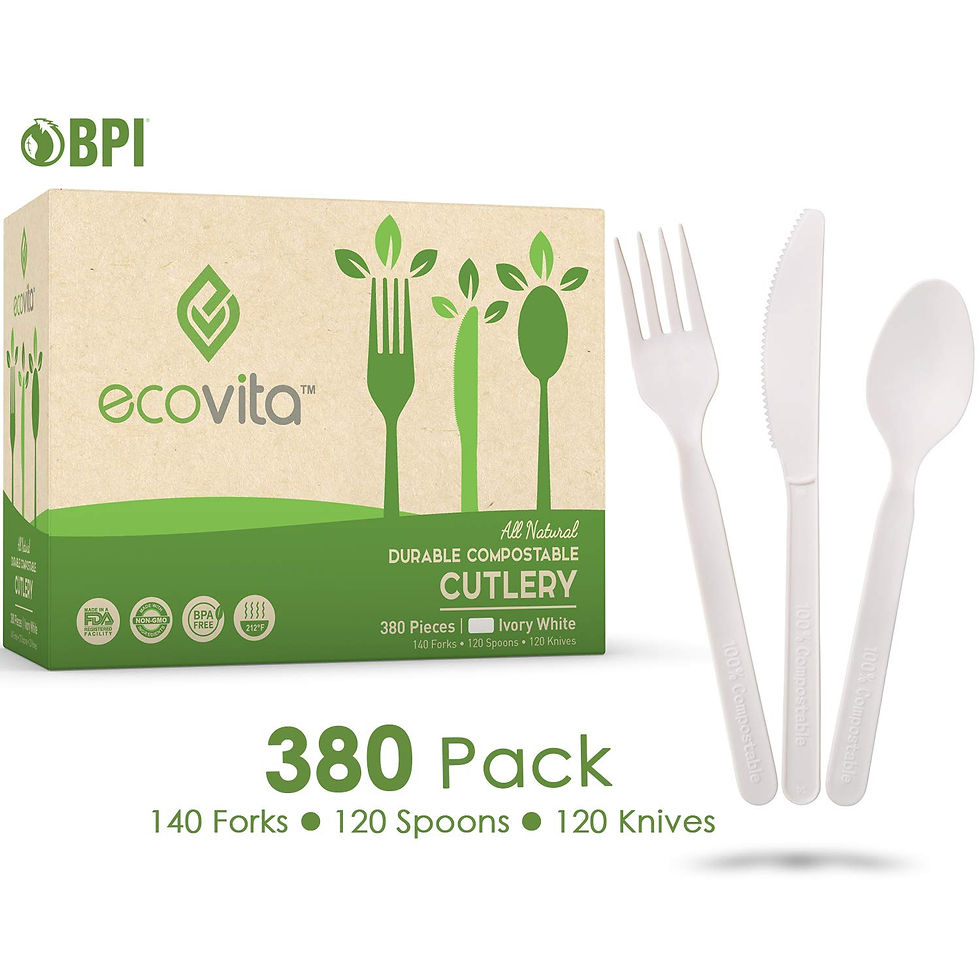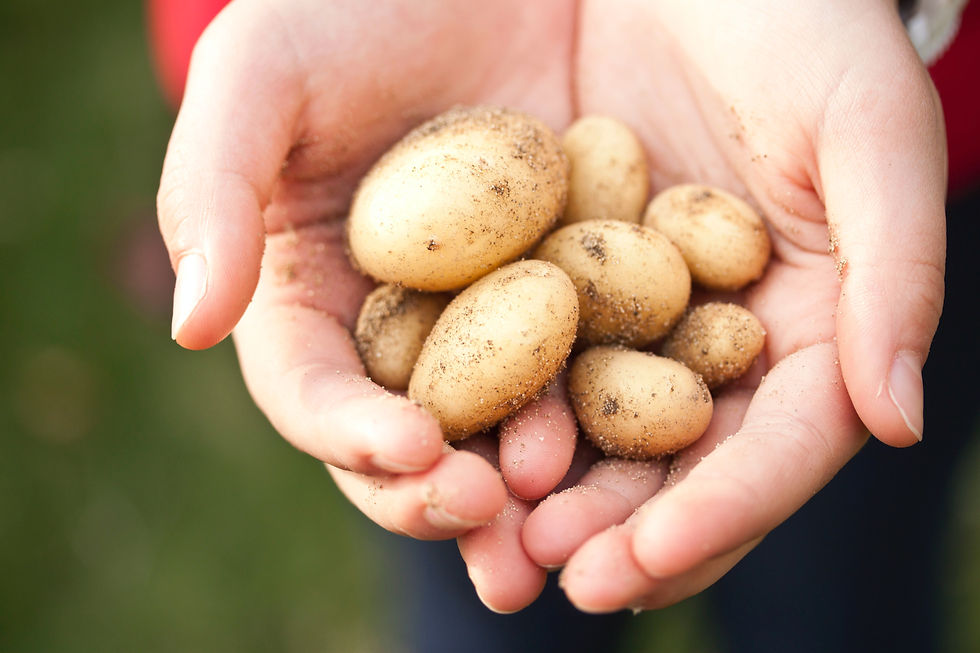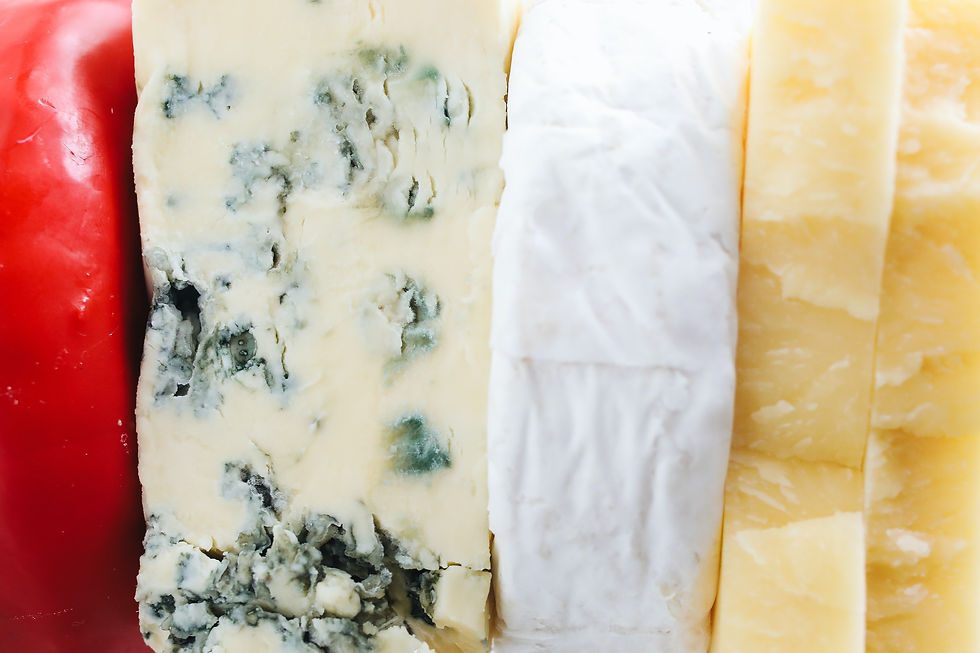Porntato - Deliciously Nasty
- felipegombossy
- 12 de out. de 2020
- 8 min de leitura
Checklist Assignment - Sustainable Chef

INTRODUCTION
In my opinion, sustainability is an idea, a principle. A guideline to conduct both individuals and businesses toward a better economic system. This is still a work in progress that, in the end, will change our mindsets and lead us to results that will directly impact on our near future. Being sustainable is being careful, thoughtful, helpful, and profitable at the same time. It not only is a process to close the loop in any sort of business, but it is also a guideline to keep all human beings alive.
I do not want to sound tragical, but let’s face 2 facts:
1- The way we are managing our lives will extinguish us from the Earth in no more than a few decades;
2- Being 100% sustainable is a non-achievable dream.
All that said, we should focus on what is urgent, achievable, probable, possible and needed. Moreover, we should re-think our lifestyle in general.
Regarding my future kiosk, I will concentrate my planning on waste. Or better, zero waste. Ok, zero waste is impossible, so I would be glad if my kiosk has only 10% of waste. That is achievable, possible, needed, and urgent. In Brazil, some restaurants have already received the “Zero Waste” stamp, so there are excellent examples to follow. And I will stick with my idea of working with only one main ingredient: the potato.
Taking a quick look at the Wikipedia, you will find out the potatoes are roots native to the Americas, and the plant itself is a perennial, that means that the plant lives for more than 2 years. First great news, right? There more than 5,000 potato varieties worldwide and it grows in every province in Canada, but only 21% of the Canadian production is for fresh table consumption. It is an excellent source of potassium, vitamin C, fibre and iron. According to Dr Norm Campbell, MD, professor at the University of Calgary, 17% of of the Canadian population have decreased potassium in their diet, causing a risk of hypertension. But eating poutine is not solving the problem.
Not to be too monotonous, let me give the whole idea of my kiosk. Spanish tortillas, roasted, vegetarian, cheesy, seasonable and zero waste: Porntato kiosk – deliciously nasty.
My standards:
- I am not going to use oil (olive oil is allowed);
- I am going to use the whole potato (skin included);
- Every organic waste will be delivered back to the farmers for their composting;
- I going to use only 100% biodegradable bamboo plates and compostable cutlery and napkins;
- My pick up system will only work if the customers bring their own containers.


CHECKLIST
The first items in my checklist would be to my own business and myself, but also applicable to my suppliers:
1- Am I serving healthy food?
2- What am I doing with my waste? How do I control it?
3- How do I consume energy and water?
4- Am I profitable?
5- How is the storage?

Regarding my suppliers there will be a larger list to check if the producers respect and reflect my personal philosophy. For my potato suppliers “Dowey Farms” and “Cookstown Greens”, my checklist would be:
PLANET
What am I doing with my waste? How do I control it?
How do I consume energy and water?
How is the storage?
How do they grow the products? Organic?
How do they pack their products? Are they using recyclable packages?
How do they transport and deliver the products?
Which kind of equipment do they use in the harvest?
How do they take care of the soil?
How do producers control their own waste?
What do they do with their waste?
Is there any sort of reverse logistic action?
How is the water usage? And the re-usage?
Do they have registered all equipment calibrations?
Do they provide a list of products that they use in their production?
Do they think about the 3 R’s: reduce, re-use, recycle?
How do they treat their animals?
How do they feed the animals?
Are they using hormones?
What type of vaccine do they use?
How do they store the milk? Pasteurisation?
How is the business engaging with suppliers to promote sustainability?
PEOPLE
Who is working in these farms? Do they hire Canadians first? Do they access the Seasonal Agricultural Worker Program or similar?
How much the employers are receiving?
Do they work together or close to their main clients?
How do the producers educate their employers?
What kind of initiative the producers have in their own region?
How producer payback to society?
Do they provide any sort of environmental education to their employers/community?
Increase enjoyment of and participation in arts, local culture and heritage?
Encourage and promote the interaction and understanding of different cultures?
POLICY
Am I serving healthy food?
How far is the farm? Local?
How the suppliers advertise their businesses?
How the producers operate? Do they have all the documentation necessary?
How do they plan their next steps?
How to the suppliers deal with their local government and politicians?
Does the business have the necessary support and infrastructure to develop a strong sustainability program?
Have a Fairtrade purchasing policy or support ethical trading schemes?
PROFIT
Am I profitable?
How the company can save by re-using the same packaging?

JUSTIFICATION
Basically, the checklist represents and covers all the 4 Ps of sustainability (Planet, People, Profit and Policy).
PLANET
All the questions related to waste, animals, water, power, package, storage, and equipment are based on environmental preservation. It is impossible not asking the producers/suppliers if they are damaging our planet or not. How would be possible for me to manage a no-waste, vegetarian, organic, healthy company knowing that my suppliers are doing the opposite? There is no pillow available in the market that would make me sleep well with that in my mind.
Besides my relationship with my suppliers, the other big question here is, how is my suppliers’ relationship with their suppliers? Do they also use a checklist to evaluate the procedures and policies of his suppliers? The whole system is totally interconnected. You do not grow organic if the seed you are using does not come from an organic plant. It is an endless chain of action and reaction.
The reverse logistic is also vital for the whole packaging process. Companies must be responsible for the garbage they are generating, and they must track the process to guarantee that after its use, package may also return to the company. It is not an easy away to re-use the same packages, but it is also a policy that may affect the company economically.
PEOPLE
The preoccupation with workers, community, and clients is also a major issue. How hypocrite it would be if my suppliers take advantage of the situation and mistreat their employers. More important than money and salary is how the suppliers use their profit to give back to the community. How they perform by educating workers and their families about the relationship between the impact of agriculture and business. Education is one of the most important aspects to create and build a different perspective for our future. Everyone must understand the changes that we have to implement in our own houses with our own family. The lack of that will cost us much more than any money in the world.
POLICY
All businesses have a direct relationship with the government and politicians. There is no way possible to be 100% independent of them. All the taxes we pay must go somewhere. And it is part of our job to pay attention to that. The politicians should be the people’s workers, not otherwise. We are their clients, actually.
Besides the government, businesses can also have their own policies. When someone asks the business owner about the company’s policies, they have to have an answer for that. What is the company’s statement? What is the mission of the business?
The written statements and policies are guidelines for the whole chain of impacts that a company causes. And it is also something to keep in the memory of all workers and owners. As clients, statements are a very important tool for us to demand the suppliers a position in terms of environmental preservation and workers relationship.
PROFIT
Being sustainable is not only regarding the environment, the people and companies’ policies. The 4th P of sustainability is “Profit”, and there is no way to keep the other 3 P’s if the company do not support its financial system healthy. A company can only pay its employers fairly, keep its environmental policies and use sustainable materials if the company is making money. In a capitalist world, any company will only be able to keep their business running if they have a profitable business. And being sustainable financially is the only way to companies to provide beneficial initiatives to society.
EVALUATION
As my evaluation, I have decided to check 2 of the essential ingredients of my operation: egg and cheese.

Whispering Meadows Family Farms
The family business Whispering Meadows was founded in 2003 and it has always been focused on growing its animals with the very best methods. All the animals on the farm are fed a diet that is 100% plant and vegetable-based, and free of antibiotics and hormones. The owners also promote the “succession generation farmers” to ensure that the same food quality and all-natural health protocols will be kept the same.
The farm is a certified organic producer of naturally raised chicken. They claim to be cage-free, drug-free, antibiotic-free, raised on GMO-free.
All the cleaning agents they use in the area are organic certified, using no chlorine or any other toxic chemical disinfectants. They promote that they love their customers to come to visit the farm, which means that they are sure about what they are doing and promoting.
They start their egg description saying “we are excited to introduce our organic eggs – local, free-range, pastured, and farm-fresh.”
Located in Milverton, Ontario, the farm is only 124km away from Toronto, and itPOR holds a series of organic stamps from different associations, such as “Canada Organic”, “Local Harvest”, and “OCO – Organic Council of Ontario”.

Monforte Dairy
“Southwestern Ontario’s premier artisanal company” is what Monforte website says. The companies also run their own blog, which can create a closer relationship with their customers. According to “100km Foods”, Monforte is an incredible example of a company that dedicates its business towards sustainability. They have only sourced their milk from small Mennonite and Amish sheep farms until they naturally dry up in the late fall.
They are located only a little more than 150 km from Toronto. Ruth Klahsen opened the farm 12 years ago and moved her business to Stratford. She had a long career in the culinary field, graduating in the Stratford Chef School in the 1980s.
If the checklist were applied to the Monforte Dairy, many of the important questions would be satisfactorily answered. They are local, close to Toronto, they produce amazing cheese according to many reviews. They take care of their animals, they observe their suppliers. The owner is a Chef and she has been developing a deep relationship with sustainability.
REFERENCES
Canadian Horticultural Council
Canada’s Food Guide: A healthier Canada through effective nutrition police.
January 22nd, 2020
Potato Production in Canada
Potatoes in Canada
February 5th, 2020
Logística reversa e sustentabilidade: desafio para as organizações
March, 13th 2020
Good environmental practices check list for food services: elaboration, content validation and inter-rater reliability
Restaurante Sustentável: conheça os benefícios de investor nessa tendência.
September 30th, 2020
Minha empresa sustentável
Are Paper Plates Recyclable?
Diners are bringing their own carryout containers, and restaurants are conflicted about it
How To Conduct a Simple (yet Comprehensive) Sustainability Audit
Packaging for people, planet and profit - a sustainability checklist
Monforte Dairy
12 Ontario cheese producers proving you need not look further than Ontario for quality and variety
Whispering Meadows
Downey Farm
Cookstown Greens
IMAGES
Comments